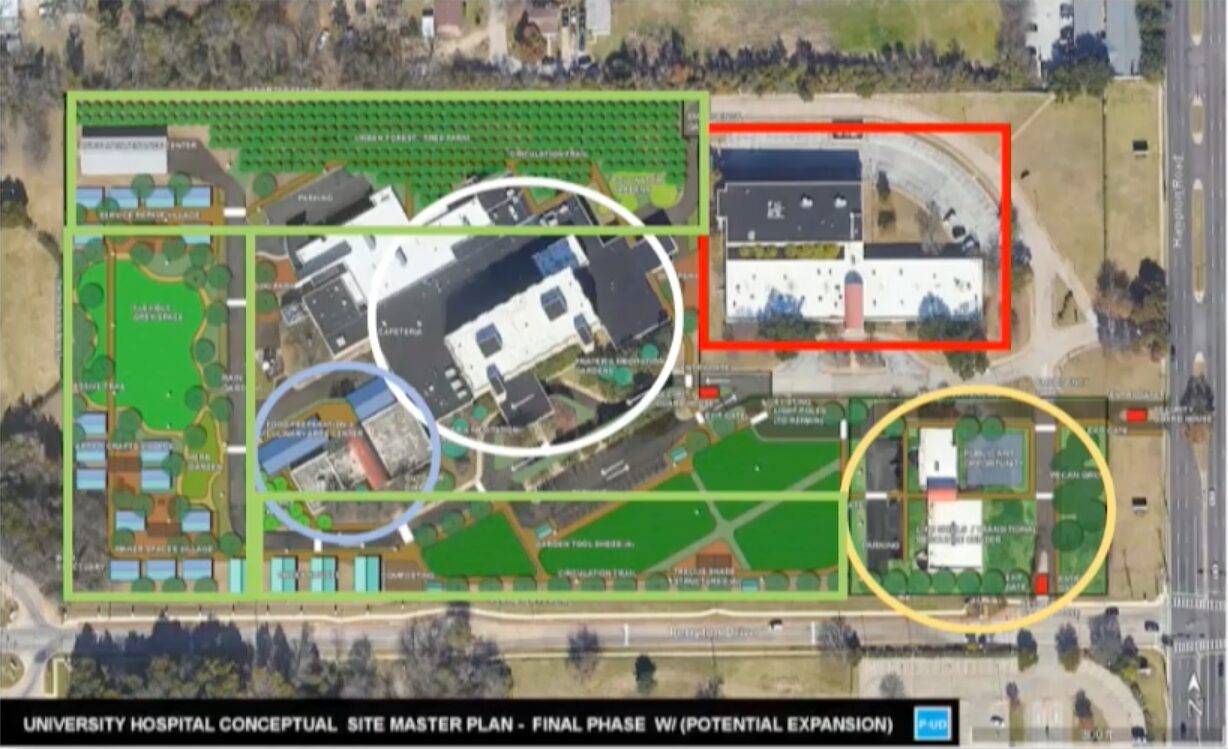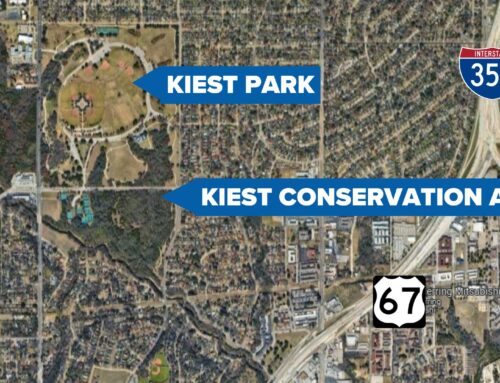
A site plan presented to the Dallas City Council shows a 100-unit housing building surrounded by office space, a hospice care facility and green areas.
Plans to develop a former hospital in south Oak Cliff into permanent supportive housing for homeless individuals remain uncertain.
In a Monday city council briefing, Christine Crossley, director of Dallas’ homeless solutions office, said that moving forward with plans to turn the 2929 South Hampton Road property into permanent supportive housing is one of three options the city can explore.
Also on the table is using the property for another public purpose or selling the property and rerouting the funds to a different homelessness initiative in the city.
The presentation was the city’s latest step in figuring out what to do with the property after a wave of backlash from neighbors slowed decisions about the site plan. Purchased for $6.5 million by the Dallas City Council in 2022, sale of the 12-acre property was initially briefed in a closed executive session; after the purchase, many residents said it was made with a “lack of transparency” for neighborhood stakeholders.
For the most part, neighbors are concerned about the location of the site, which sits across the street from Brashear Elementary, the Hampton-Illinois Branch Library and Kiest Park.
Because the property was purchased with funds from the 2017 Bond’s homeless solutions allocation, the property or funds tied to the property must be used for the intended purpose leaving the option to explore other public uses for the site ambiguous. Most council members expressed support for either the intended purpose or selling the property.
Council member Zarin Gracey, whose district includes the hospital site, told council he would support selling the property and rerouting the funds to another District 3 property, a hotel on Independence Boulevard in Red Bird, that was bought for supportive housing.
Gracey said whichever option is selected needs to be discussed in depth with residents impacted by the development.
“I want us to go in and openly talk about all three of these options, and then from there, develop a timeline around one of those options,” Gracey said.
Other council members voiced support for exploring the intended supportive housing facility use. According to a 2023 study by the Child Poverty Action Lab, Dallas is projected to be 83,500 affordable housing units short by 2030.
Council member Adam Bazaldua said that projected demand necessitates “hard decisions,” like investing in supportive housing. Council member Cara Mendelsohn said she would like to see the facility have a “stronger focus on seniors” in response to the large number of senior individuals experiencing homelessness in Dallas.
“We need a place for them, and they have different needs than our younger population,” Mendelsohn said.
Crossley said there is a hospice care facility mapped out on a mock property plan that would give “dignity” to the terminally ill homeless.
Council member Chad West said a community survey should be the next step for the project. A survey could be used to help a work group dedicated to the site “narrow their focus,” as well as identify misinformation about the project that needs to be addressed through further outreach.
City staff said they intend to use the council’s feedback to “reengage community members,” but there will be a significant amount of time until a decision is made. Crossley said a project developer for the site may not be chosen until 2026.
“I would like you to take what you’ve gotten from the body today back to the community so we can start the community engagement part of this,” Gracey said.





